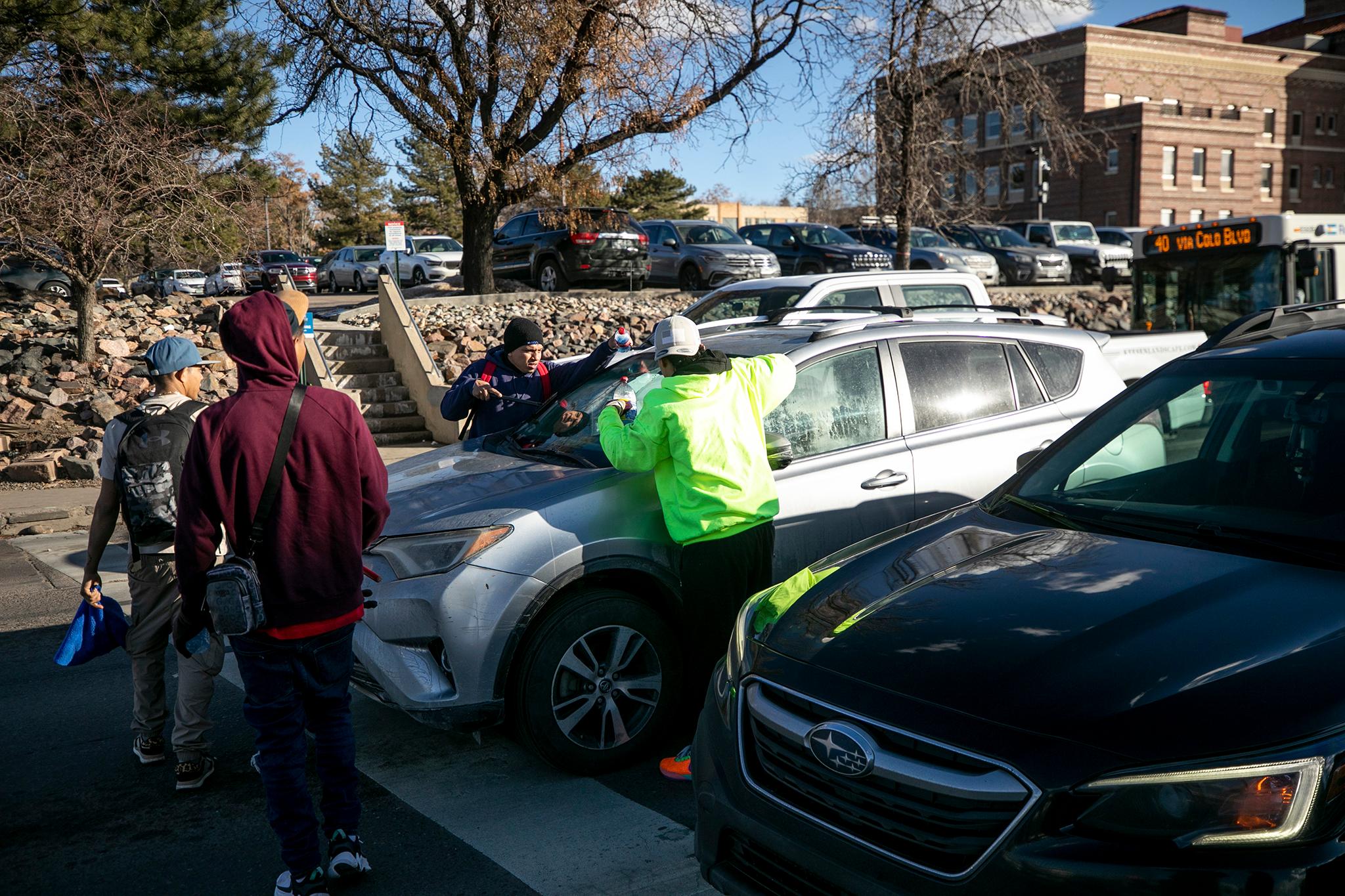Editor's note: This story contains an image of a sign that readers may find offensive.
At 5 a.m. Thursday morning, an RTD bus operator spotted anti-immigrant signs with a racist message bolted to bus stops near the intersection of Colfax Ave. and Colorado Blvd.
The metal signs referred to Black people sitting “at the back of the bus,” behind “Kamala’s migrants.”
Within hours, the transit agency and the police removed the signs and began an investigation. Chicago Transit Authority confirmed identical signs were removed in Chicago. Denver police say they are investigating the incident as a possible “bias-motivated” crime.
In the case of Thursday’s signs, police are looking into potential security camera footage that could help find the person that put up the signs.
“DPD is handling this case as a bias-motivated crime and are collecting evidence with the goal of holding the perpetrator accountable,” DPD told Denverite Thursday.
RTD condemned the signs as "hateful and discriminatory," as did many leaders in Denver.
A self-described “political guerrilla artist”, Sabo, implied in posts online that he was responsible for the signs that were posted earlier in Chicago during the Democratic National Convention, and wrote a lengthy post about the Denver signs, too, though he didn’t “admit to putting anything up.”
Elected officials were quick to react.
Denver Councilmember Shontel Lewis heard about the signs early Thursday morning from a constituent. She said she plans to hear from the communities she represents about what they want to see in response to incidents like this.
“Reach out to your elected officials and force them to do the jobs that you we all elected them to do,” Lewis said.
Leslie Herod, State Representative and former Colorado Black Democratic Legislative Caucus chair, talked about the importance of speaking out against hate. In a statement Thursday, she described her grandparents’ experience fighting segregation in Mississippi.
"When we say, ‘We won’t go back,’ this incident is a stark reminder of why. We have more work to do, and we won’t stop until we create the more perfect union we all deserve," she said.
Evan Weissman, who founded the community nonprofit Warm Cookies of the Revolution and teaches college classes on nonviolence, said moments like these call for nonviolent action.
“I think in the longer term… what are we actually doing to make it so that this feels like a welcoming place for everyone?

Many Denverites have taken action to welcome new immigrants in the city in the past two years.
In both Denver and Aurora, grassroots groups, nonprofits and moms on Facebook have come together to serve the needs of newcomers when public systems fall short. Residents have raised money and dropped off donations for new immigrants, especially during peak arrival times.
It’s happened worldwide as well. In the wake of an anti-immigrant riot in the U.K. earlier this month, counter-protesters responded by voicing support for immigrants and condemning racism.
Who’s in charge of dealing with vandalism and unauthorized signs?
If it’s on public property, 311 is the number to call to reach the city. If the vandalism involves RTD, riders can report it to the Transit Watch app or by calling 303-299-2911.
You can also report a hateful incident to the District Attorney’s hate crimes hotline at 720-913-6458 and to Denver Police at the 911 emergency line or the non-emergency line at 720-913-2000.













